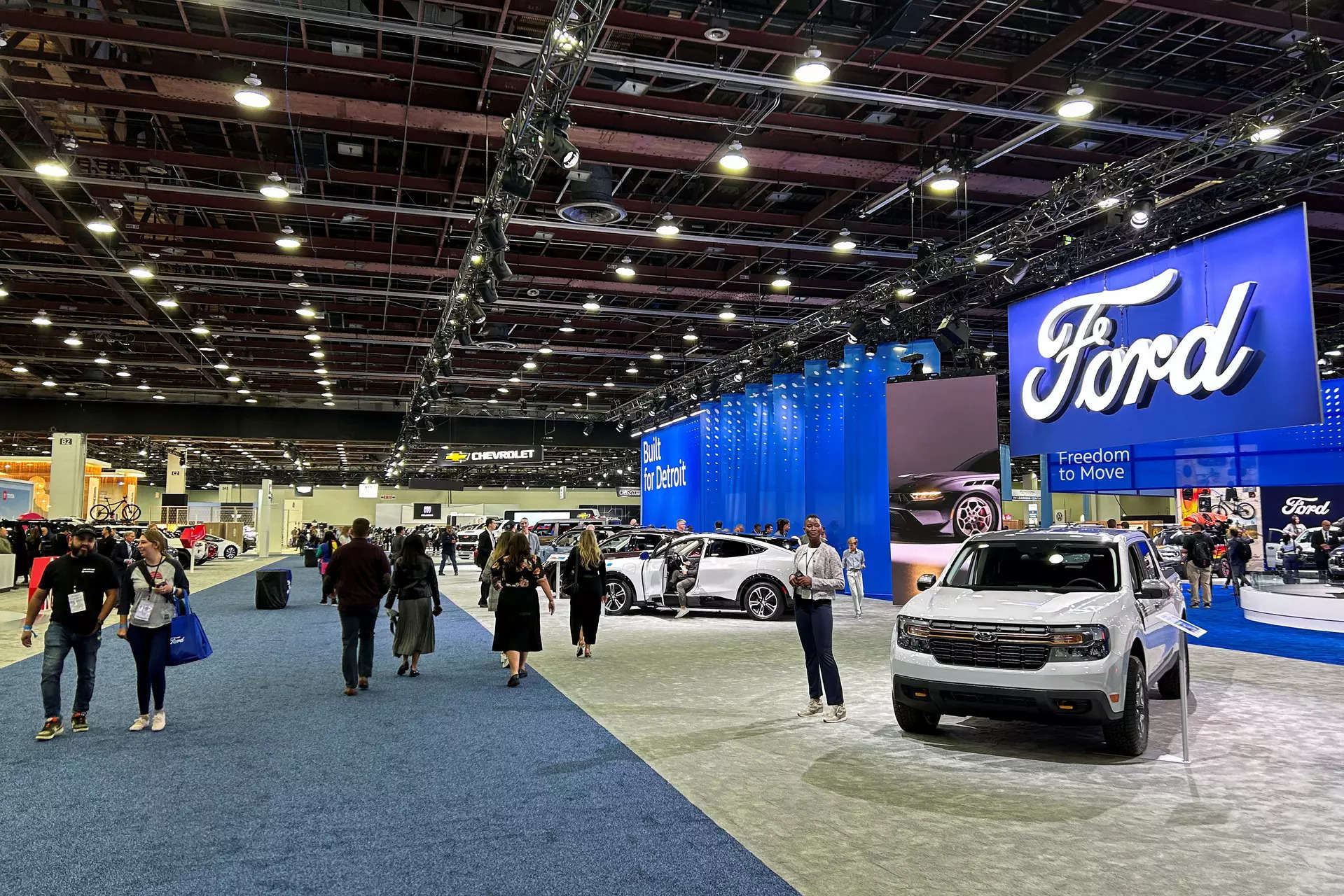
The Detroit Auto Show kicked off Wednesday with glitzy new vehicles overshadowed by a potential auto workers’ strike that becomes more likely with each passing hour.
The showcase is opening to the press one day before the Thursday night deadline when existing United Auto Workers (UAW) contracts at General Motors, Ford and Stellantis expire.
“On the evening news, it’s the number one item,” said Alan Amici, president of the Center for Automotive Research, a nonprofit think tank in Ann Arbor, Michigan.
“People are a little bit nervous about that and we’ll hear the results tomorrow as we approach midnight.”
New UAW president Shawn Fain has for months vowed a tough approach to negotiations, demanding significant pay hikes in light of record profits and saying a strike could potentially extend to all three companies.
The pace of negotiations has accelerated markedly in recent days, with proposals and counteroffers going back and forth.
Ford chief executive Jim Farley said Tuesday night that the two sides had made progress, but had “more to do.”
Speaking on the sidelines of a Ford event at the Detroit show, Farley said he was “still optimistic” on averting a strike, but that there are limits to what can be accepted and the company is “absolutely” ready for a strike.
Industry sources express guarded optimism about averting a stoppage, but there is also wariness as some see signs a strike may be inevitable.
These include the UAW’s announcement of a Friday afternoon rally in downtown Detroit with Fain and Vermont Senator Bernie Sanders, one of Congress’ staunchest champions of organized labor.
The UAW represents about 150,000 workers at the three companies.
The economic impact of a strike would depend on its scope and length.
The worst-case scenario, a lengthy strike at all three companies, would dampen household consumption and prompt potential layoffs at auto suppliers, industry experts say.
Hit from inflation
Formerly held in January, the event, officially known as the North American International Detroit Auto Show, was rebooted as an autumn occurrence in 2022 with a primary focus on retail consumers.
It is meant in part to offer consumers a chance to get a closer look at electric vehicles (EVs), which are expected to become a bigger presence in the years ahead.
Ford kicked off this year’s proceedings with a Tuesday night celebration of its updated F-150 pickup truck, for decades the most popular vehicle in the United States.
GM and Stellantis unveiled new vehicles at boisterous press conferences Wednesday morning after show organizers welcomed attendees with comments that made no mention of the labor situation.
The show opens to the public Saturday.
But many in and around the auto industry are much more focused on the labor situation.
A note from JPMorgan Chase rated the strike odds as “high,” given the gulf between the negotiating parties and the union’s desire “to reclaim purchasing power lost to inflation… and to protect real wages from the potential for future increases in the cost of living.”
Fain has targeted a 40% wage increase commensurate with hikes in CEO pay in recent years.
Fain has also highlighted other worker priorities, such as job security during the transition to electric vehicles, an elimination of different pay levels among workers and better benefits for retirees.
President Joe Biden weighed in last month, saying the UAW “deserves a contract that sustains the middle class,” but urging “all sides to work together to forge a fair agreement.”
The company offers thus far have proposed wage increases between 10 and 14.5%.
Fain has been dismissive of such company proposals, calling the offers “insulting.”
While Fain’s tough tone opens the way for a possible strike, observers note that such a posture could also be a bargaining technique.
In any case, locals are beginning to organize concrete steps in case there is no deal by Thursday at midnight.
The website of UAW Local 600, which represents workers at Ford’s Dearborn truck plant, includes strike assignments to workers for the first seven days of a stoppage.

